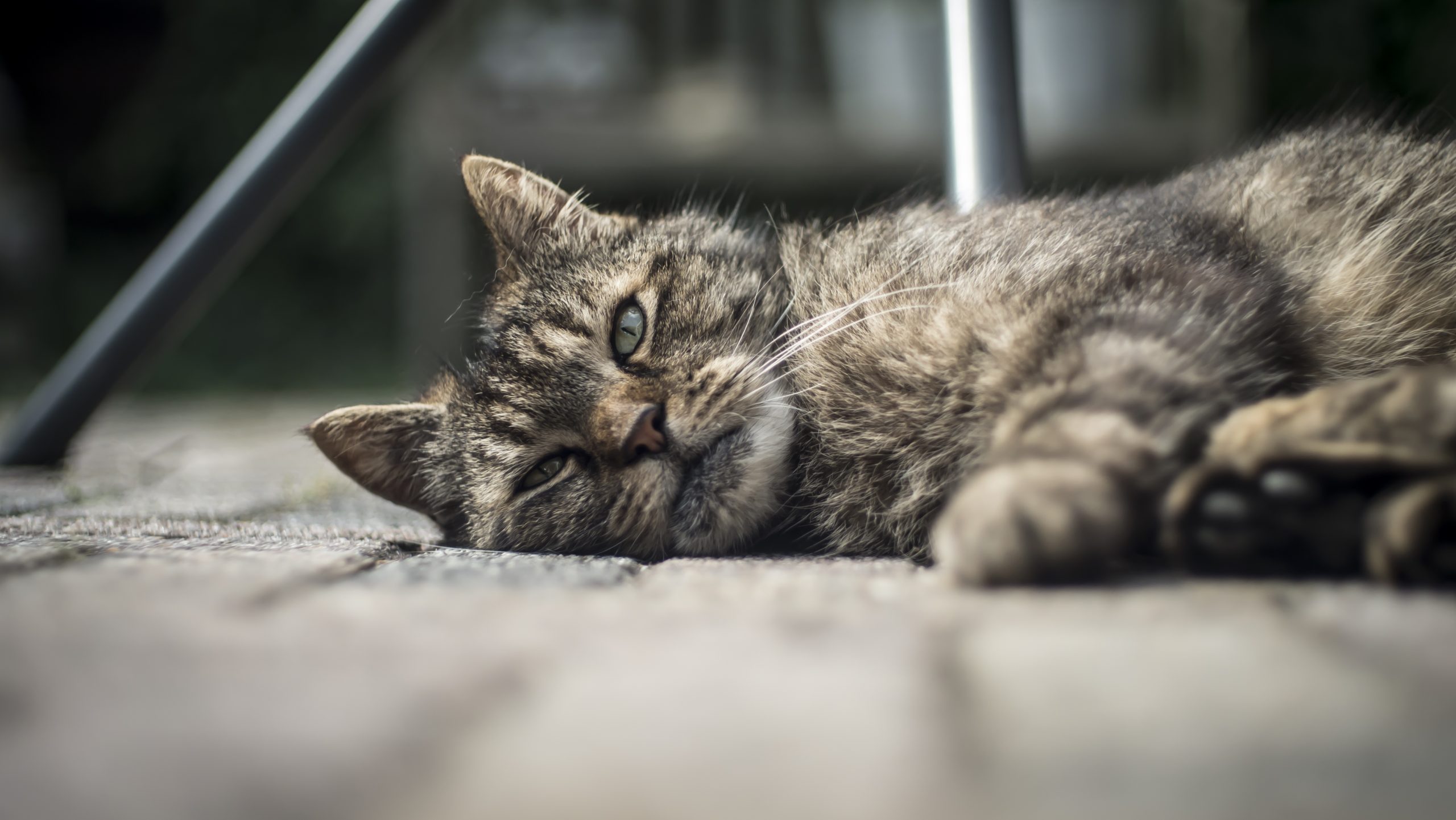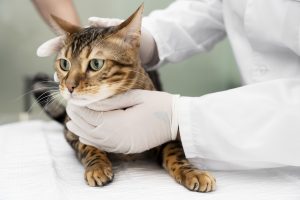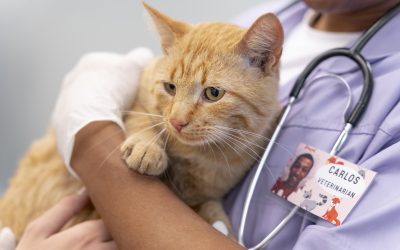Cat Diabetes [Symptoms, Treatment Options, and Cost]

What is Diabetes in Cats?
Diabetes is a chronic disease that affects humans and our feline friends. Like humans, cats develop diabetes when their bodies cannot properly regulate blood sugar levels. This occurs when the pancreas fails to produce enough insulin or the cat’s body resists insulin. Insulin is a hormone that helps regulate blood sugar levels and allows cells to absorb glucose for energy.
What Causes Feline Diabetes?
The exact cause of feline diabetes is still unknown, but several factors can contribute to its development. One of the primary factors is obesity. Overweight cats are more likely to develop diabetes due to increased insulin resistance. Other factors include genetics (especially Russian Blue, Norwegian forest cat, and Abyssian breeds), age, and certain medical conditions such as pancreatitis or hormonal disorders.
Risk factors for feline diabetes
Several risk factors can increase a cat’s chances of developing diabetes.
These include:
- Age: Older cats are more prone to developing diabetes than younger cats.
- Obesity: Overweight cats have a higher risk of developing diabetes.
- Gender: Male cats are more likely to develop diabetes than females.
- Inactivity: Lack of exercise can contribute to obesity and increase the risk of diabetes.
- Diet: A high-carbohydrate diet can increase the risk of diabetes in cats.
What Are the Signs and Symptoms of Diabetes in Cats?
Recognizing the signs and symptoms of diabetes in cats is crucial for early diagnosis and treatment. Some common symptoms include:
Increased thirst and urination: Cats with diabetes may drink more water and urinate more frequently.
Increased appetite: Despite eating more, diabetic cats may still lose weight.
Weight loss: Diabetic cats may experience unexplained weight loss.
Lethargy: Cats with diabetes may seem more tired and less active.
Poor coat condition: Diabetic cats may have a dull and unkempt coat.
Vomiting: Some diabetic cats may experience episodes of vomiting.
Dehydration: Cats with diabetes may become dehydrated due to increased urination.
If you notice any of these symptoms in your cat, it’s important to consult your veterinarian for a proper diagnosis.
Diagnosing Feline Diabetes
To diagnose feline diabetes, your veterinarian will perform a series of tests. These tests may include:
Blood Glucose Test
A blood glucose test is the most commonly used diagnostic tool for cat diabetes. It measures the amount of glucose in the cat’s blood, and a high blood glucose level indicates diabetes.
Urine Analysis
A urine analysis can also provide valuable information about a cat’s health. In the case of diabetes, glucose in the urine can indicate high blood sugar levels.
Treatment Options for Feline Diabetes
Once a cat has been diagnosed with diabetes, several treatment options are available. These include:
Diet for Diabetic Cats
Diet plays a crucial role in managing feline diabetes. A veterinarian may recommend a special diet low in carbohydrates and high in protein. This helps regulate blood sugar levels and promotes weight loss in overweight cats.
Exercise Recommendations for Diabetic Cats
Regular exercise is essential for diabetic cats. It helps improve insulin sensitivity and promotes weight loss. Your vet can provide exercise recommendations suitable for your cat’s health condition.
How to Define the Optimal Insulin Dosage?
Insulin is often necessary to manage diabetes in cats. The dosage of insulin will vary depending on the cat’s individual needs. Your veterinarian will determine the optimal insulin dosage based on factors such as the cat’s weight, blood glucose levels, and response to treatment.
Expenses Involved in Taking Care of a Diabetic Cat
Managing feline diabetes can come with certain expenses. These may include:
Veterinary visits: Regular check-ups are necessary to monitor the cat’s condition and adjust treatment.
Medication: The cost of insulin and other medications required for diabetic cats.
Special diet: Diabetic cat food may be more expensive than regular cat food.
Considering these expenses is important when deciding to adopt or care for a diabetic cat.
How to Treat Feline Diabetes Without Insulin?
Sometimes, it may be possible to manage feline diabetes without insulin. This can be achieved through diet, exercise, and weight management. However, it’s essential to consult your veterinarian before changing your cat’s treatment plan.
How Can Pet Insurance Help You if Your Cat Has Diabetes?
Pet insurance can be a valuable tool in managing the costs of treating feline diabetes and other veterinary expenses. By having a pet insurance policy in place, you can have peace of mind knowing that you can provide medical care for your furry companion without worrying about the financial burden. Pet insurance can help cover the costs of veterinary consultations, diagnostic tests, medications, and even specialized treatments if required.
Reimbursement
This method is the most common for pet insurance companies. You pay out of pocket for the veterinarian bill, and then the insurance company reimburses you for what’s covered under the insurance plan. The steps look like this.
- You pay the vet bill after your cat’s visit.
- You fill out the pet insurance claim form.
- Submit the claim form and other required documentation to the insurer.
- After the claim is approved, you will be reimbursed for eligible expenses.
What Does Odie Pet Insurance Cover?
Pet insurance covers various veterinary expenses, providing financial protection and peace of mind for pet owners. Here are the details of the coverage options offered by Odie Pet Insurance:
Illness & Injury Plan
The Illness & Injury Plan is an all-inclusive insurance plan designed to cover a wide range of medical needs for your pet. This plan includes comprehensive coverage for various illnesses, injuries, and veterinary services. Some of the covered items include:
- 24/7 Televet Chat
- Emergency vet visits
- Overnight hospital stays
- IV Fluids & Medications
- Medical Supplies
- Surgeries
- MRI/CAT Scans
- Rehabilitative Care
- Prescription Medications
- Gastrointestinal issues
- Laboratory Tests
Accident-Only Plan
The Accident-Only Plan is designed for pet owners seeking coverage specifically for accidents. This plan provides financial protection for emergency veterinary care resulting from accidental injuries. It includes 90% reimbursement up to $10,000 each year, with a $250 annual deductible.
Here’s an overview of the Accident-Only Plan:
- Coverage for broken bones, sprains, eye injuries, and traumatic dental fractures.
- Coverage for wounds, including bite wounds, lacerations, snake bites, and bee stings.
- Veterinary treatments covered for accidental injuries include X-rays & ultrasounds, laboratory tests, emergency care, hospitalization, CT scan & MRI, and surgery.
The Wellness Add-on Plan
Enhance your coverage with our Wellness Plan, an optional addition to your insurance policy tailored for preventive care. Designed to prioritize your pet’s well-being, it includes routine veterinary services and focuses on early detection through preventive screenings. With Odie, you have two wellness plan options, both emphasizing wellness and covering essential blood tests, including screening for diabetes.
Basic Plan:
- Covers services such as rabies vaccination, flea & tick prevention, heartworm prevention, vaccination/titer, wellness exam, heartworm test or FELV screen, blood, fecal, parasite exam, microchip, urinalysis or ERD, and deworming.
- Reimbursement up to $305 per year.
Plus Plan:
- Ideal for puppies and kittens.
- Covers services such as spay/neuter and teeth cleaning, rabies vaccination, flea & tick prevention, heartworm prevention, vaccination/titer, wellness exam, heartworm test or FELV screen, blood, fecal, parasite exam, microchip, urinalysis or ERD, and deworming.
- Reimbursement up to $535 per year.





